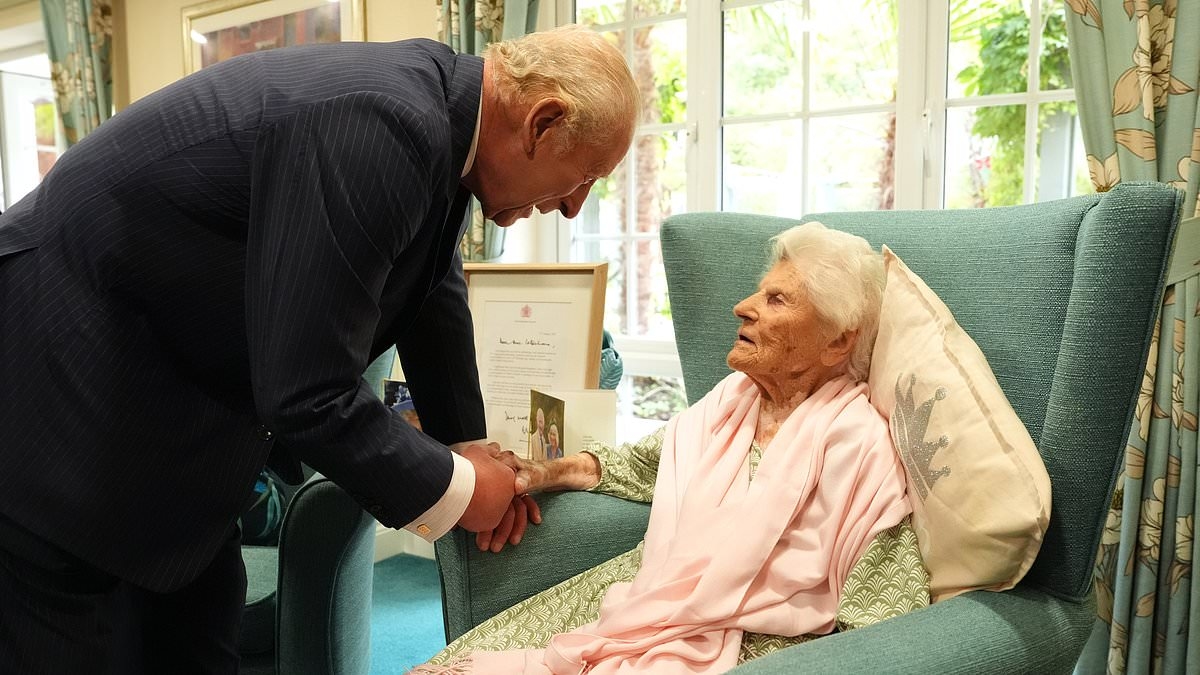Data reveals you're more likely to live to 100 than ever before - experts reveal what they have in common

Published: | Updated:
More people in the UK than ever before are living beyond 100 years old, official figures revealed today.
Over 16,600 people across the UK were at least 100 in 2024, according to the Office for National Statistics (ONS) data.
It means the number of centenarians has more than doubled since 2004.
Women were almost four and a half times as likely to celebrate turning 100 than men, with women accounting for over 13,500 centenarians.
Experts believe women may outlive men currently because of historically high smoking and drinking levels among men.
Women are also more likely to have cardiovascular disease and cancer—Britain's two biggest killers—treated more effectively than men.
Research too has suggested women may have stronger immune systems than men and great resilience to infections than older men.
But, the rate of male centenarians has increased at a faster rate than women — trebling between 2004 and 2024.
The oldest living person in the world is now believed to be Ethel Caterham, from Surrey, who was born on August 21, 1909 and is 116 years old
According to the ONS data, there were an estimated 16,640 centenarians alive last year, up 3.5 per cent from 16,070 in 2023.
It also marks an increase of more than a third (36.3 per cent) on pre-pandemic levels.
By nation, Wales recorded 25.9 centenarians per 100,000 people in 2024 — almost double the 14.9 logged in 2004.
England saw a similar rise, with 24.7 per 100,000 in 2024 compared to 14.3 in 2004.
Scotland, meanwhile rose from 11 per 100,000 to 18.4 per 100,000 over the same time period.
Northern Ireland had the lowest proportion of centenarians at both points, with 15.3 per 100,000 in 2024 and 8 in 2004.
Across the UK, while the number of female centenarians increased 17.6 per cent in the past decade, there had been a 46.2 per cent jump for males.
This trend was also reflected in the figures for people aged 90 and over.
The over 90s population stood at 625,236 in 2024, up 2.2 per cent on the previous year and—as with the number of centenarians—a new all-time high.
Statisticians claimed some of this growth may be due to a spike in babies born in the years immediately after the end of the First World War in 1918.
This led to a sharp rise in the number of people turning 100 in 2020 and 2021.
The volume of births started to drop in the early 1920s, which has resulted in smaller increases in the number of people reaching 100 in the past few years.
Head of demographic insights at the ONS, Kerry Gadsdon, said: 'Despite a steady decline in numbers of births after the post-World War One peak, the number of centenarians has continued to grow.
'The number has doubled in the past 20 years and in 2024 around one in every 4,200 people in the UK were centenarians.
'This increase is largely because of past improvements in mortality, going back many decades, with more people surviving to older ages.
'These improvements are because of factors such as improvements in living standards and public health, along with advances in medical treatments.'
It comes as research last year suggested that life expectancy across the world will rise by almost five years by 2050, with the average man forecasted to live to 76 and woman, past 80.
Global average life expectancy is forecast to increase to around 78.1 years of age in 2050, a rise of 4.5 years, The Lancet Public Health study also found.
At the time, experts said the trend was largely driven by public health measures both preventing and improving survival rates from illnesses including cardiovascular disease, nutritional diseases and maternal and neonatal infections.
The oldest living person in the world is now believed to be Ethel Caterham, from Surrey, who was born on August 21, 1909 and is 116 years old.
The title of the oldest person to have ever lived belongs to French woman Jeanne Louise Calment whose life spanned 122 years and 164 days.
Ms Caterham, who died in 1997, attributed her longevity to 'never arguing with anyone, I listen and I do what I like'.
Experts who have studied centenarians agree.
Physical activity, faith, love, companionship, and a sense of purpose make up the backbone of so-called 'Blue Zones,' or areas of the world where people typically live to 100 and beyond.
Maintaining an active lifestyle, even simply walking around town every day, has been shown to improve longevity.
Companionship has been shown to have a similarly positive effect on a person's lifespan, with studies consistently showing loneliness is toxic.
Daily Mail






